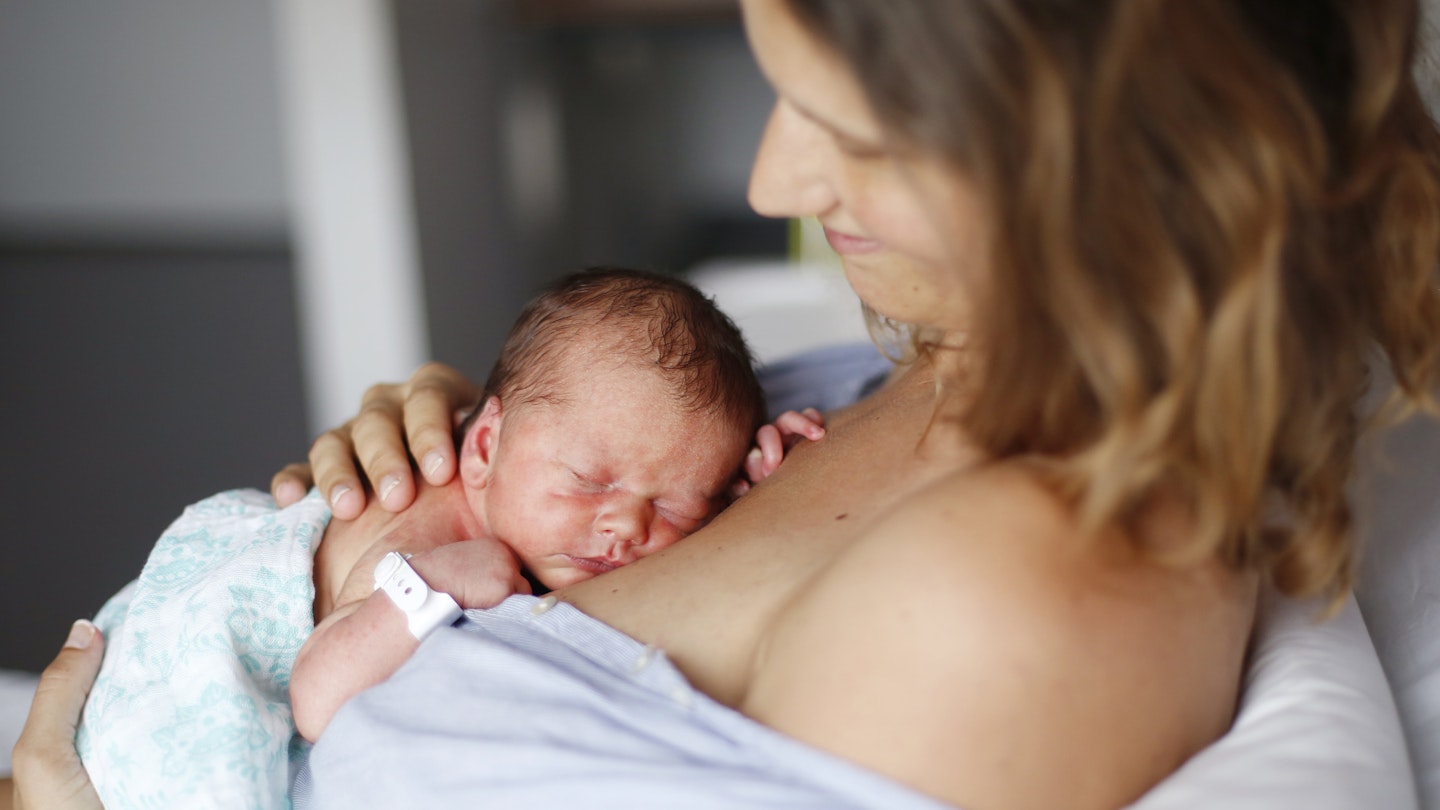As soon as the positive pregnancy test flashes in sight, it's likely to find yourself swarmed with decisions to make. From coming up with nursery decor ideas to thinking about your options for giving birth — from a C-section to a water birth — or you may be considering a vaginal birth. For years this kind of birth was referred to as 'natural birth', but we know all births are natural, no matter how your baby enters the world.
Of course, we know we can't always control what direction our labour takes. Sometimes the situation might mean you need a c-section, or you may need some extra assistance to get baby out using forceps or a ventouse to give birth.
If however your first choice is to have a vaginal birth, here's everything you need to know, plus nine mums tell us their personal reasons for choosing one...
What's considered a 'natural birth' or vaginal birth?
A vaginal birth aka the more dated term, 'natural birth' means different things to different people. To some it means no interference during birth — including nolabour pain relief nor medical help. For others, the concept is more about forgoing medical pain relief.
Vaginal births have sometimes in the past been called 'normal births'. Of course, whatever birth you choose, it is completely your own prerogative. Every birth is normal and whatever you choose, it shouldn't be seen as a status symbol. A lot of mums may plan to have a vaginal birth, however, due to unforeseen circumstances (including birth difficulties) may change their mind during labour.
Vaginal birth is often referred to by midwives and doctors as 'normal birth' or 'natural birth', but if you would prefer them to use different terms, have the confidence to speak up.
In the UK, theNCT, Royal College of Midwives and the Royal College of Obstetricians and Gynaecologists have agreed a definition for vaginal birth, natural birth and normal births. According to this definition, it's one in which:
• labour starts spontaneously (on its own)
• labour progresses without certain drugs or assistance
• forceps or ventouse are not used
Women who have had the following however during birth, will not be considered to have had a vaginal birth:
•induction of labour (with prostaglandins, syntocinon drip or by having their waters broken)
• epidural pain relief in labour or spinal
• forceps or ventouse - these can often be used if shoulder dystocia occurs
• caesarean section
• general anaesthetic
Is vaginal birth right for you?
Generally, a vaginal birth or 'natural birth' is safe for most mums, unless you have a high risk pregnancy. You'll likely be able to give birth naturally if you are just having the one baby, go full-term, have no underlying or pre-existing health problems and have had no problems throughout your pregnancy.
Always consult your doctor for medical advice to see if it's the best option for you and your baby.
It's unlikely you'll be able to have a vaginal childbirth experience if you:
• Are pregnant with twins
• Are less than 37 weeks pregnant, when you go into labour
• If you are considered overweight or gained too much weight during pregnancy
• Experience other pregnancy complications likegestational diabetes or the pregnancy condition preeclampsia
• A group B strep carrier (you’ll be tested during week 36 of pregnancy); you’ll need IV antibiotics during labour to decrease the risk of neonatal infection
• Have a baby in thebreech position when you go into labour — for your safety and your baby’s you will likely require a C-section.
What are the risks?
Prepare to feel everything - Some women find the pain is much more intense than they first anticipated, which sometimes leads to them having pain killers in the end. Know that you can always let your practitioner know you're planning for a drug free birth and remember, you can ask for an epidural at any time during the process if the pain gets to be too much.
You might not be able to have one – Feel comfortable with the idea that you may need pain killers and that things might change. Whether it is due to medical reasons or something else, you may need interventions or drugs anyway.
Labour could be longer - If you begin to get tired, anxious, or stressed during your labour, it may take a while longer to deliver the baby.
What are the benefits?
You might have better success breastfeeding - Studies have suggested that immediate skin-to-skin contact helps with early mum and baby bonding that can make breastfeeding easier.
You'll be able to move - Many women find comfort in the fact they can move during labour and it's often a good way to cope with pain. Whether it's walking around or bobbing up and down on abirthing ball, you'll have the freedom to move about as you please with a vaginal birth rather than being confined to a bed like you would be with an epidural.
Pushing may be easier - Because you won't receive pain-relieving medication, you won’t lose any sensation and will be able to feel your baby move more easily which can also mean less vaginal tearing to keep your post-birth vagina in tact.
Faster recovery - You’ll be able to get out of bed and walk around sooner post-birth, since you won’t be numb from the epidural or medication. In turn, walking will help speed your post-birth recovery.
How to prepare for a natural birth
There are many things you can do to prepare for your labour. It mainly boils down to getting yourself as informed and prepared as possible in the run up to your birth.
Do your research - Take classes, read some pregnancy books, head to Mother&Baby's YouTube and watch some video’s about birth (particularly on hypnobirthing). There are loads of helpful resources out there about giving birth naturally and the more knowledge you have, the better.
Talk to your midwife or GP - Whether you plan to give birth in a hospital or midwife ledbirthing centre, make sure your midwife is aware of the birthing experience you have in mind.
Consider hiring a doula - While your midwife is there to get your baby delivered in a healthy, safe manner, a doula is there to support throughout your pregnancy and labour and delivery when the pushing gets more intense. During pregnancy your doula will talk to you about a birth plan, and when you're in labour they’ll work hard with you to get you through it.
Learn about pain management techniques - In the weeks leading up to your delivery, try a variety of pain management techniques with your birthing partner such as hypnobirthing, massage therapy, breathing exercises and aromatherapy. By practising the same techniques over and over, it becomes second nature when you need it most — plus it's a good way to see what works best for you ahead of the big day.
Nine mums reveal why they had a vaginal birth...
Natural birth
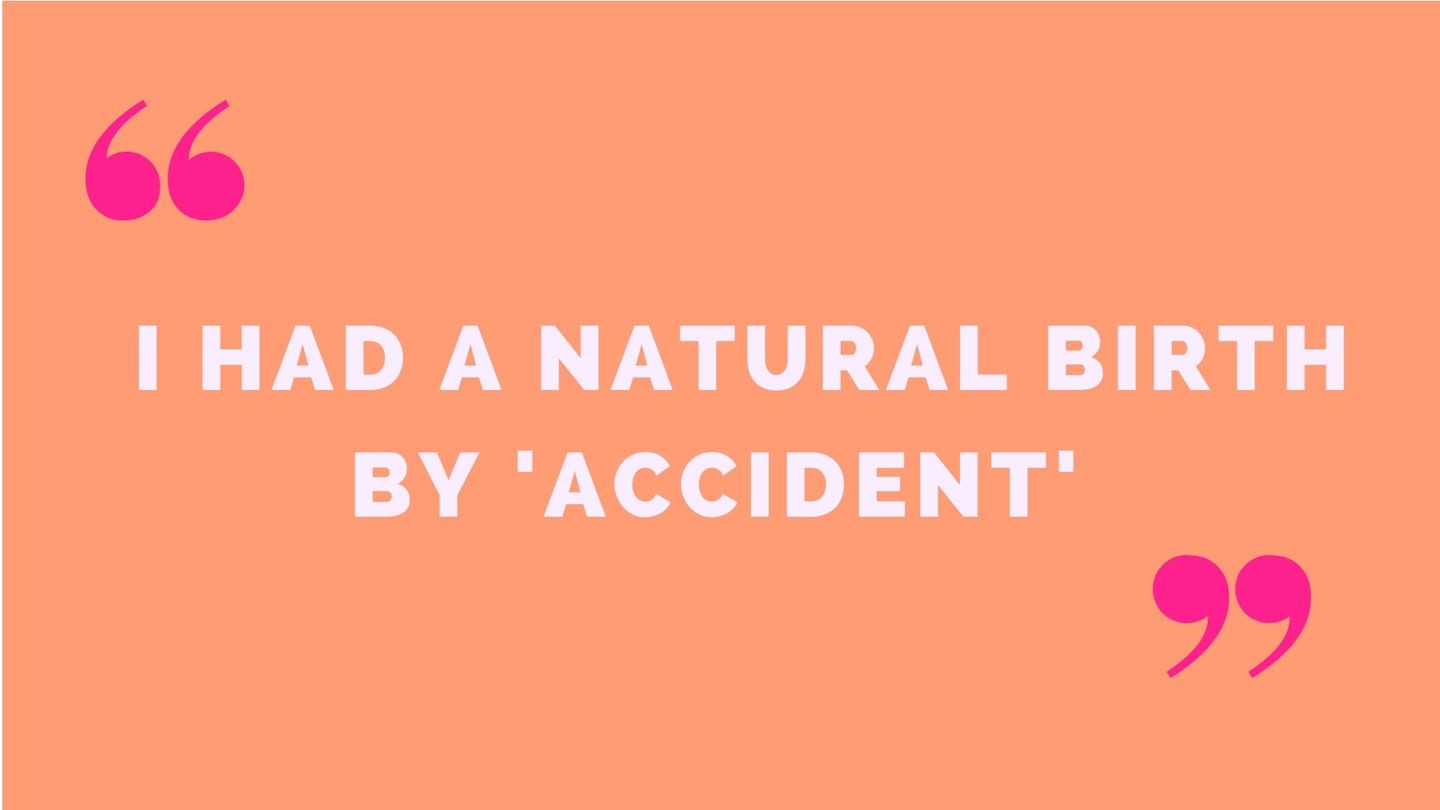 1 of 9
1 of 91) I had a natural birth by 'accident'
"I had a natural birth by 'accident' - I'd always planned to have whatever pain relief was on offer but once I was in labour I didn't feel like I needed it...the midwife kept offering through out but I just kept thinking I'll wait a bit longer until it gets bad, but before I knew it my little one was in my arms!" - Jenny Illsley
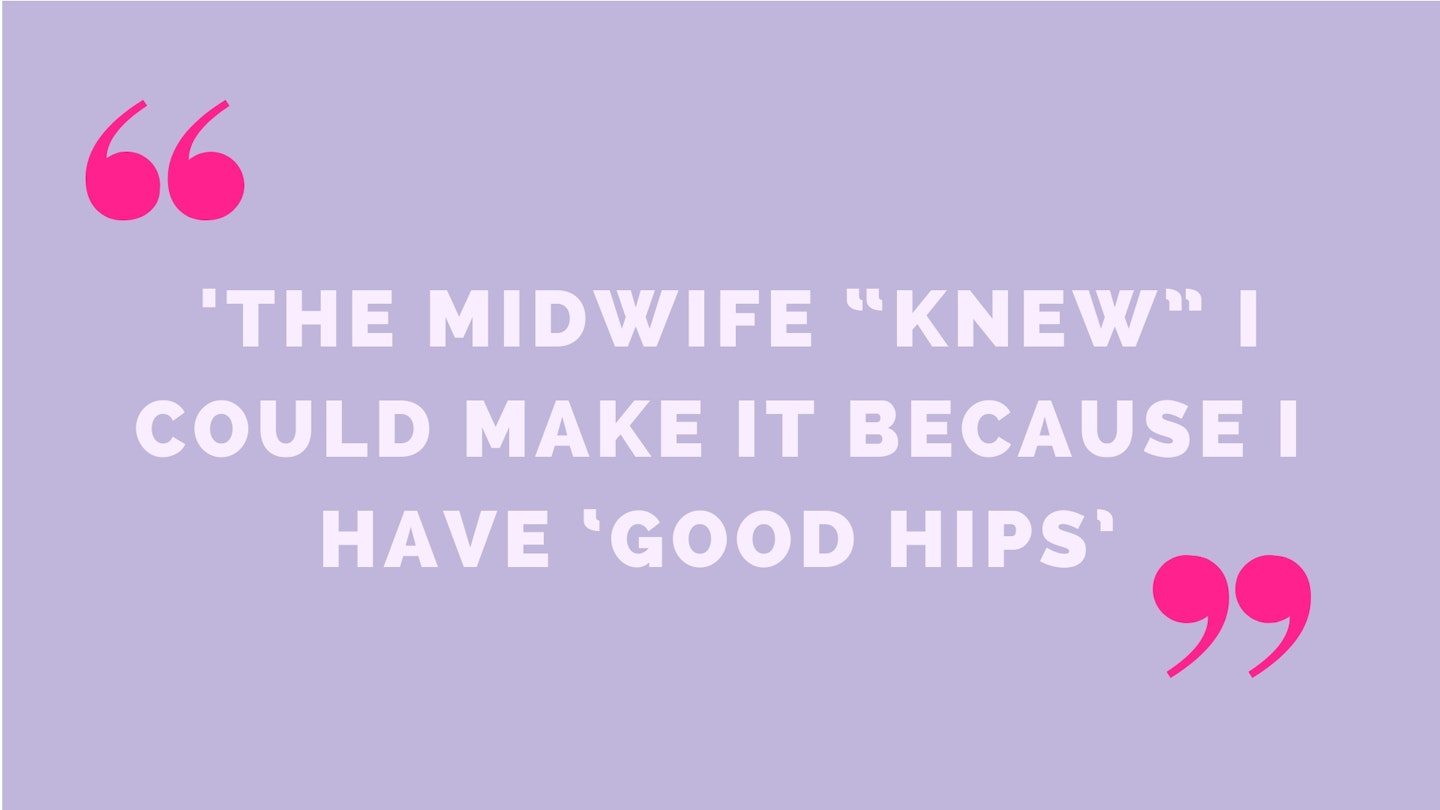 2 of 9
2 of 92) The midwife “knew” I could make it because I have ‘good hips’
"I did and it was only because the midwife “knew” I could make it because I have ‘good hips’. I thought I was gonna die but hey, here I am! Had my boy 6 weeks ago, he was born with 9 lbs." - Tamara Howells
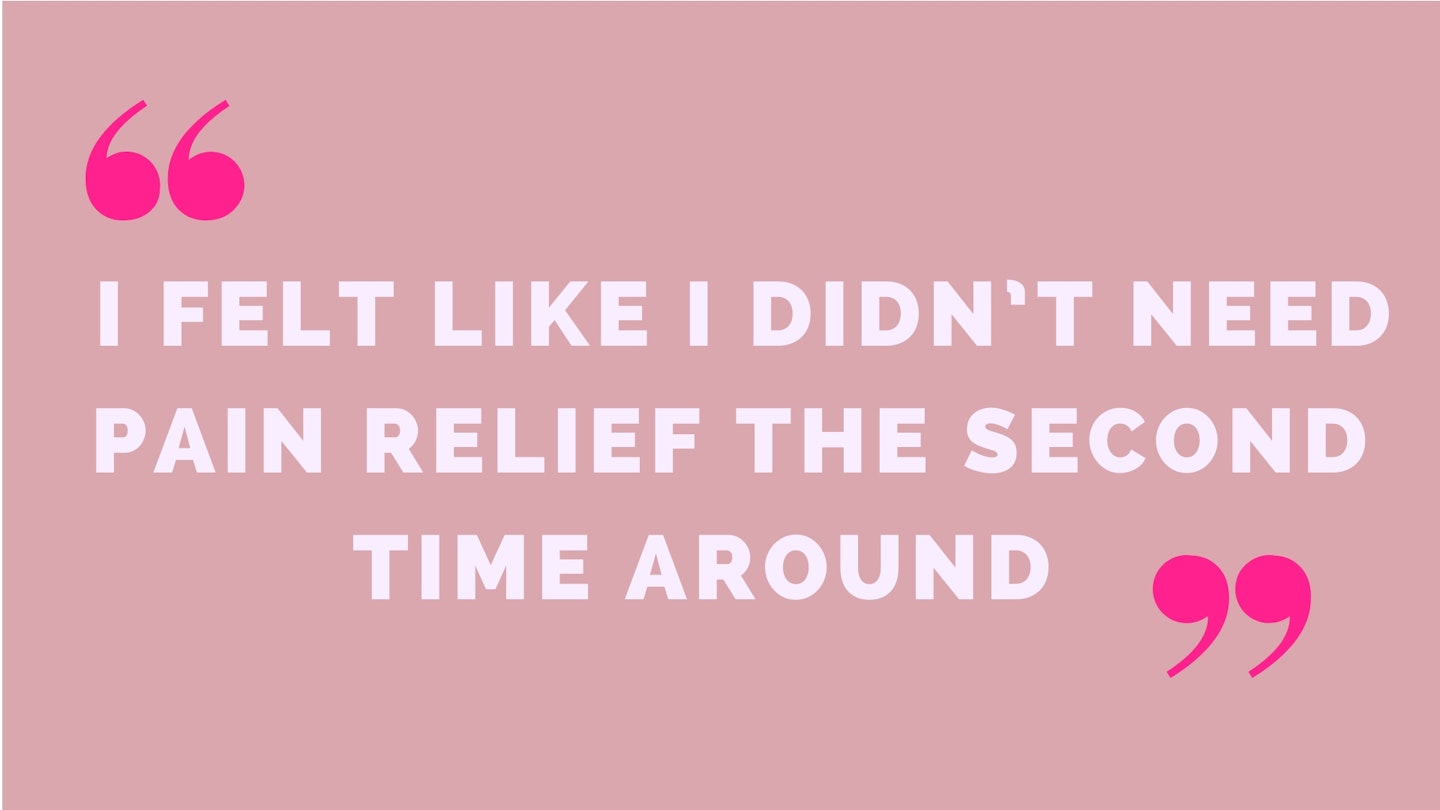 3 of 9
3 of 93) "I felt like I didn’t need pain relief second time around"
"I had gas and air with my first and no pain relief with my second. My second labour was very quick so that’s why I had nothing for pain. I also had waterbirths so gas and air was all I could have. I felt like I didn’t need pain relief second time around" - Katie Croft
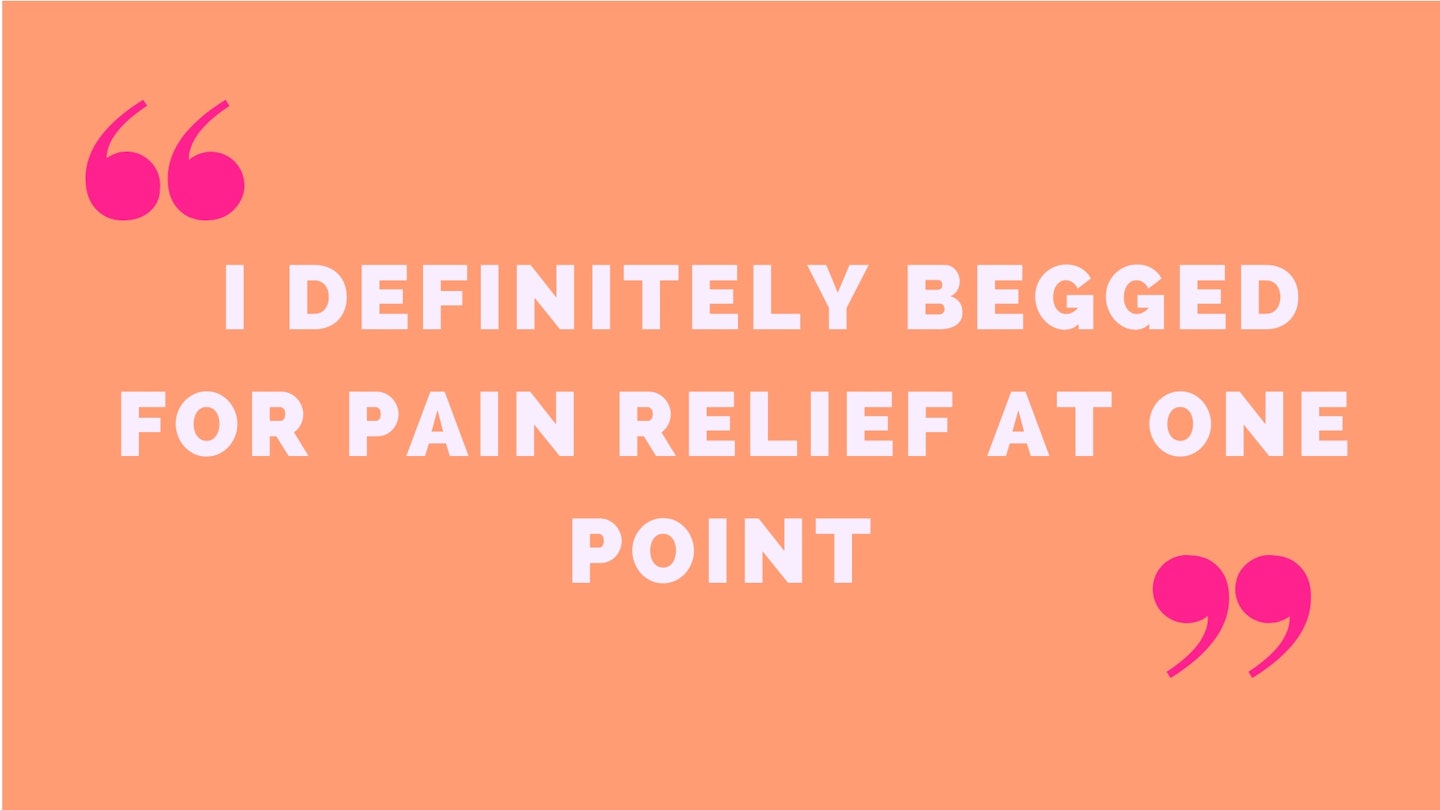 4 of 9
4 of 94) I definitely begged for pain relief at one point
"I wanted as little intervention as possible... the midwives were wonderful and the experience was just as I’d imagined, although certainly more challenging!
I think I definitely begged for pain relief at one point but my little boy was already on his way out! I did end up having pain relief afterwards and local anaesthesia for stitching some tearing, but it was important to me to birth without for many reasons, all for the benefits of my baby, rather than myself.
I’d definitely opt for this again, but I would try something like hypnobirthing next time." - Sarah Alexandra
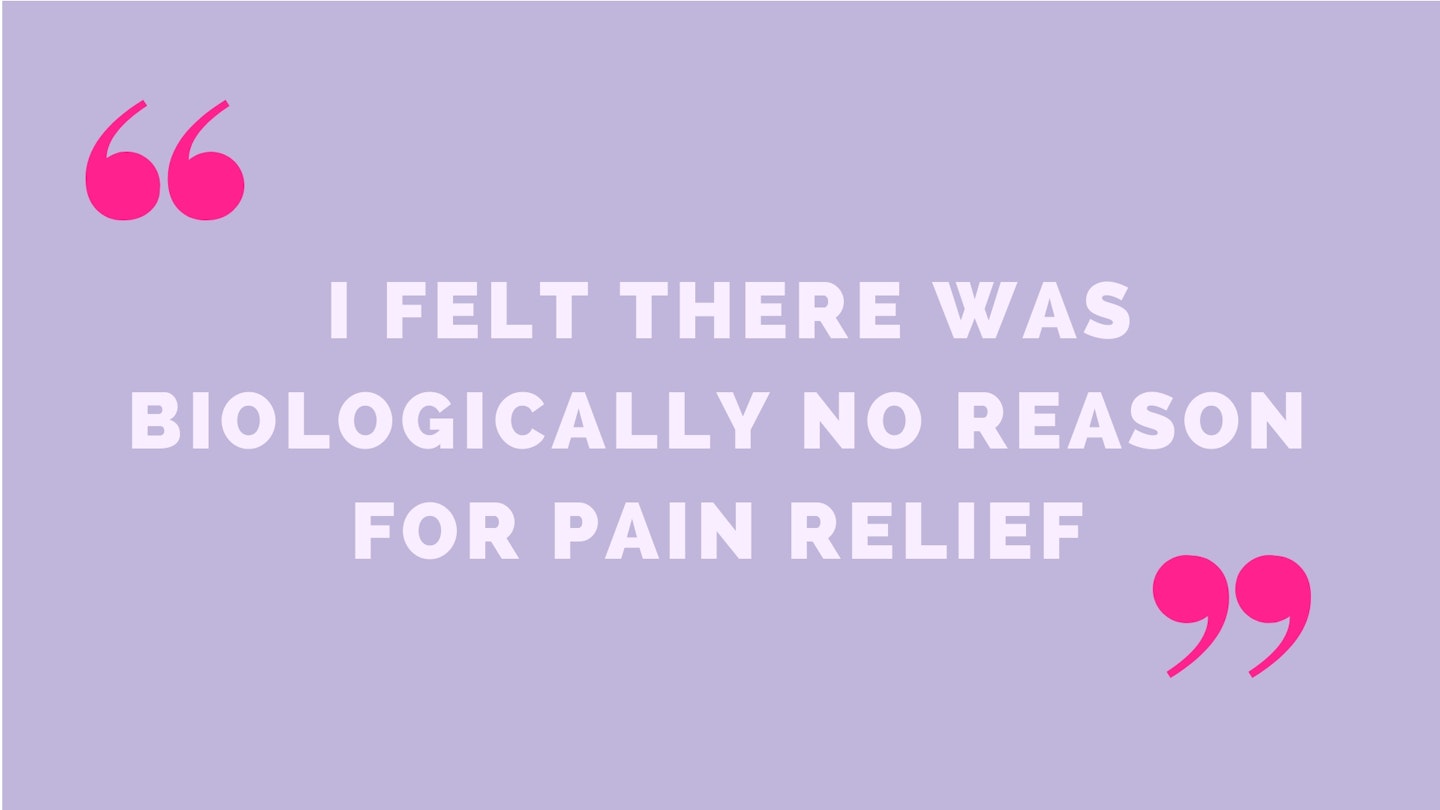 5 of 9
5 of 95) I felt there was biologically no reason for pain relief
"I did a hypnobirthing course during pregnancy so felt that there was biologically no reason for pain relief. I had planned to have awater birth but by the time I got to the hospital I was too far long so managed to birth my baby with just gas and air." - Laura Fitzgerald
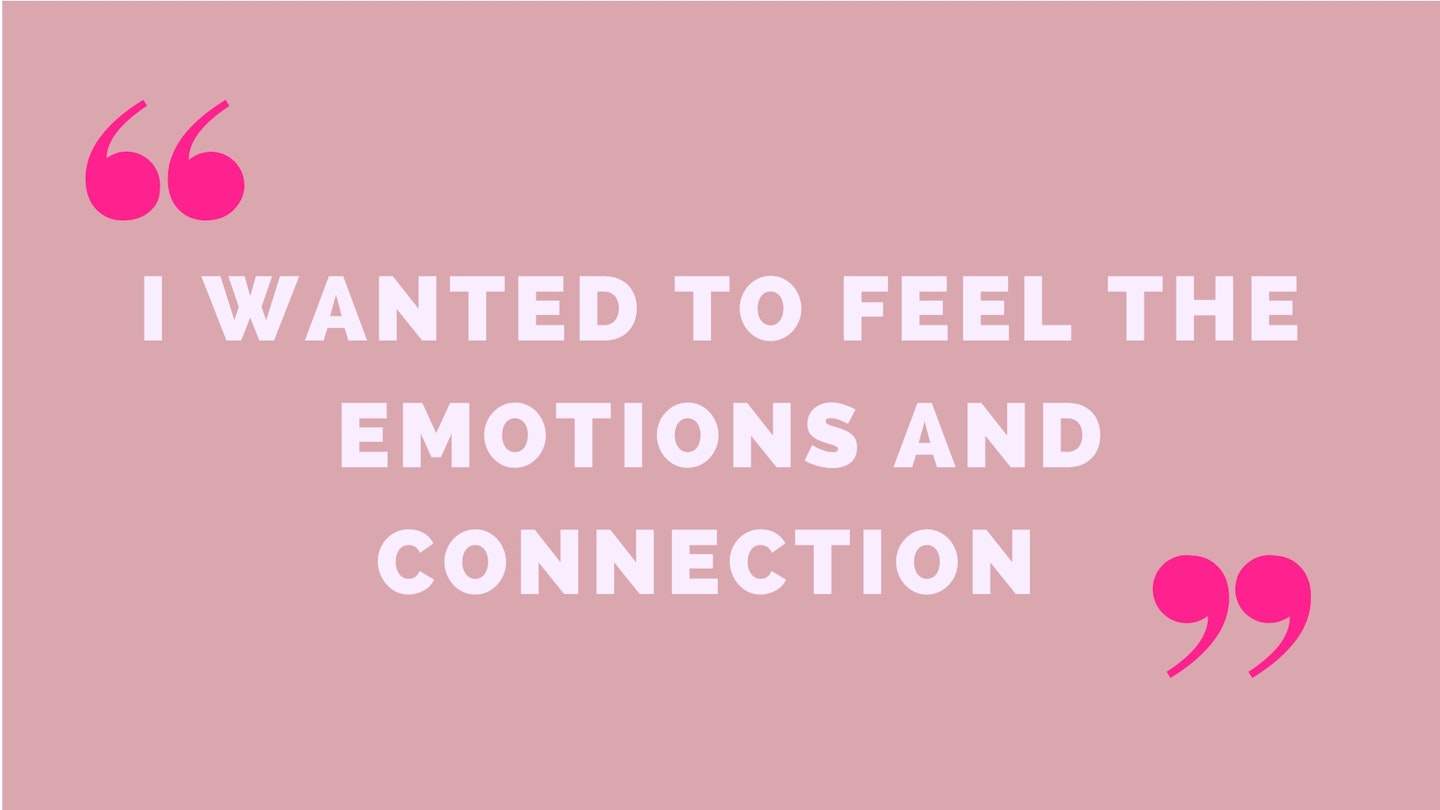 6 of 9
6 of 96) I wanted to feel the emotions and connection
"First birth was completely natural by choice. I wanted to feel everything, the emotions and connection to my baby straight away. I wanted my baby to be born drug free, so he was alert straight away. I did a lot of reading into natural births and went down the hypnobirthing route. It was an amazing 24 hour labour and birth experience. We were back home less than 4 hours after delivery
Second I chose a home birth. Again natural labour with no pain relief. Agnes was born at 10pm and we were tucked up in bed before midnight.
I am very grateful for my two births. With both births there were small complications that without the support of the midwives could have had a very different outcome for my babies.
My first was back to back and had the cord around his neck twice. His placenta took over an hour to deliver, but I did it in the end.
My daughter was born very quickly only a 40 min labour and after her heart rate dropped I had to deliver her fast. One push later and she was born healthy if a little blue" - Aimee Turner
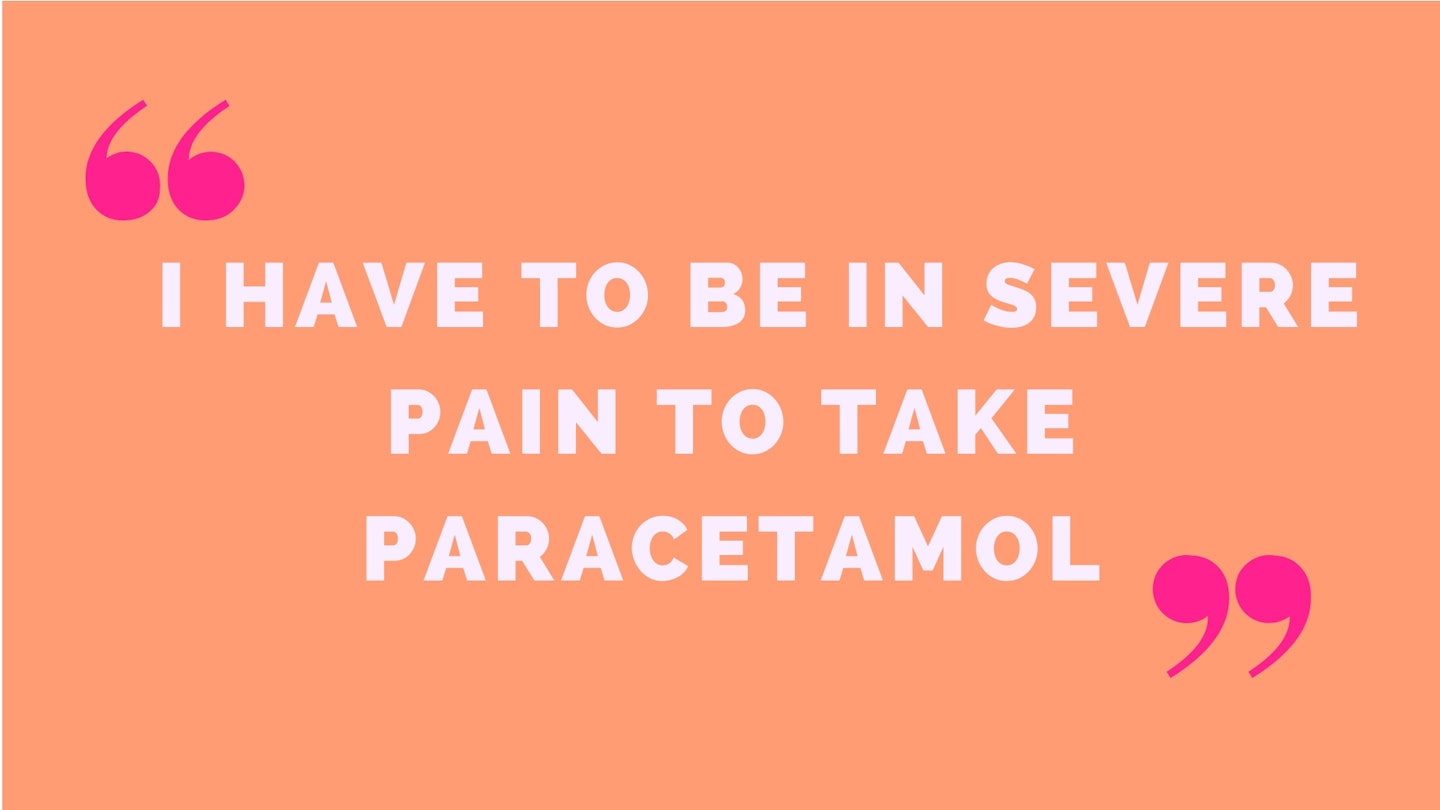 7 of 9
7 of 97) I have to be in severe pain to take paracetamol
"I've had two. My first daughter, now 8, was tough ended up with epidural and forceps and I didn’t enjoy any of it or the recovery and being numb for ages and they damaged my urethra. My second baby was amazing - no pain relief water birth and my most recent (6 weeks ago) was a 26 hour labour 6 week premature baby and I was determined to go pain relief free and I did! Just stubbornness I think and I’m anti drugs anyway, I have to be in severe pain to take paracetamol" - Alexandra Bufton
 8 of 9
8 of 98) I tried to remind myself that our bodies are built to give birth
"I had a 'natural birth' at home for a few reasons - first being I had the best support in a midwife that anyone could wish for, so totally trusted them to deliver my baby.
I tried to remind myself that our bodies are built to be able to give birth, and that it's not an 'illness' or something that needs medication or relief (unless of course something goes off track, then we are so lucky to have that option of medical intervention and hospitals etc)....so I tried to trust my body that it would know what to do involuntarily..and that was why I didn't want to interrupt that process as much as I could.
O chose not to have gas and air as I hate the feeling of being dizzy or sick, and I know that is sometimes how people feel with it. So, with some breathing techniques and water, and most importantly an incredible support network it happened 'naturally'
Of course, just want to repeat, this was just my choice, everyone has their own preferences, and it's neither better or worse, we are all unique and awesome that way" - Maryanne Jones
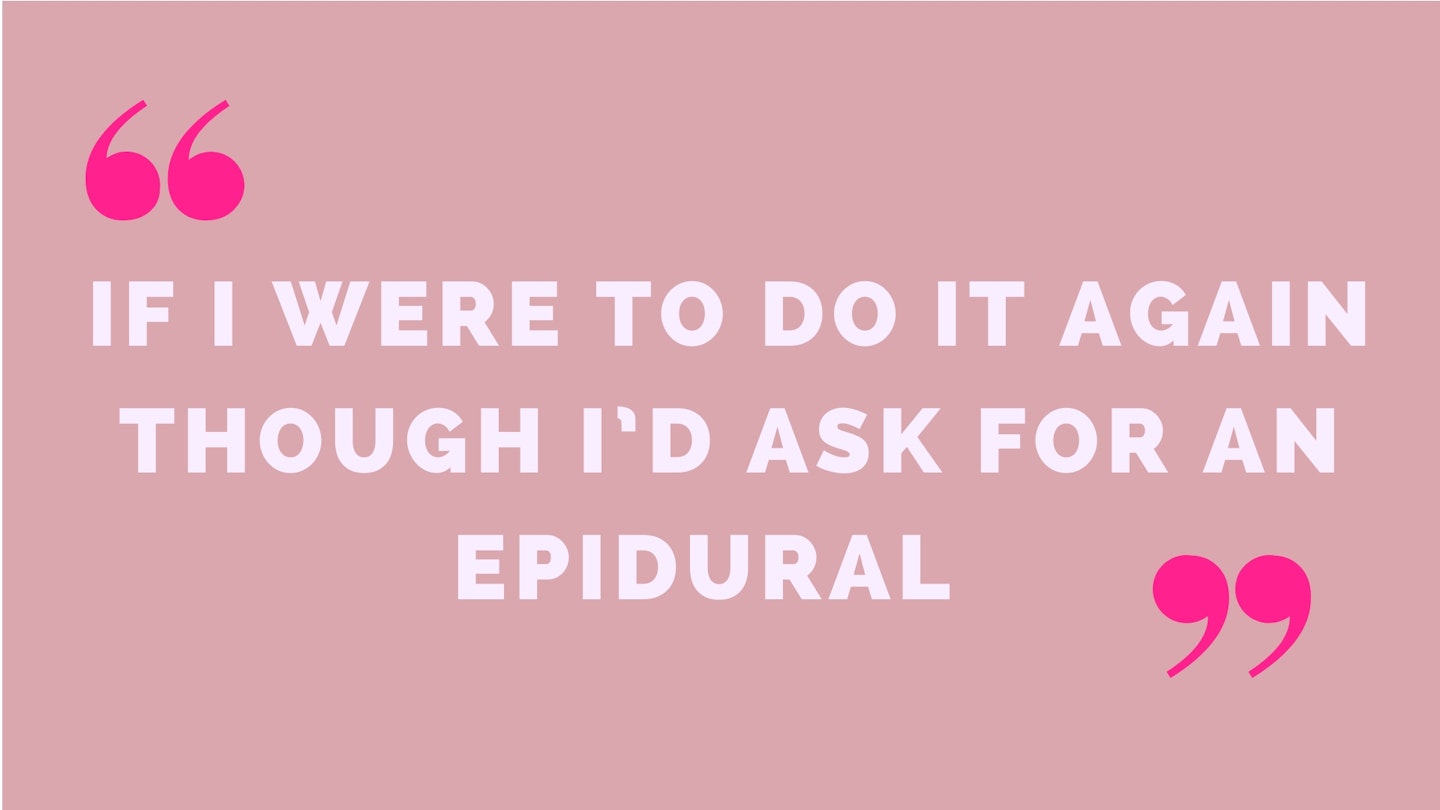 9 of 9
9 of 99) If I were to do it again I’d ask for an Epidural
"I did hypnobirthing, so a drug free birth was important to me. I wanted to feel in control and know what was going on, remember it all and didn’t want to feel off my face.
I also wanted a quicker labour and quicker recovery. I ended up using breathing techniques throughout labour and just had some gas and air. I did have a quick labour 6 hours for a FTM and recovery wasn’t too bad. If I were to do it again though I’d ask for an Epidural! I had a Ventouse assisted delivery and that shouldn’t be allowed to be done without pain relief!! I also have no memory of 95 per cent of my labour despite not having drugs." - Katie Shelton
